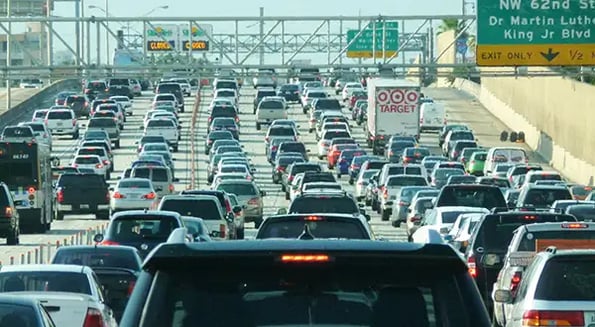A study by urban transportation researcher Bruce Schaller found that Uber, Lyft, and other ridesharing platforms make traffic worse in urban areas, contrary to long-standing claims they take cars off the road.

The research won’t kill rideshares, but it fans the flames of other alternative urban mobility options (like, say, electric scooters???).
One of the biggest ‘benefits’ of ridesharing turns out to be BS
Proponents have long claimed rideshares will reduce car traffic by encouraging passengers to leave personal rides at home. But this study found that UberPools and Lyft Lines add 2.6 extra miles driven for every 1 mile of personal driving reduced.
Based on 5.7B miles ridden across 9 cities, 60% of rideshare users would have walked, biked, used public transit, or skipped the trip if they hadn’t gotten an Uber or Lyft.
For cities that are already struggling with traffic problems, this is bad news.
The good news: Everyone wants to reinvent urban ‘mobility’
From scooters to self-driving cars, entrepreneurs are developing all sorts of new modes of transportation. But not all of these options are equal.
Like rideshares, self-driving cars promise to reduce the number of personal cars on the road — but research from Schaller and others suggests they will still increase traffic and urban congestion.
But smaller options, like bike-shares or scooter-shares, don’t clog up highways — making them an attractive business alternative to clunky car-based options.
Hmmm, maybe Uber and Lyft were onto something when they started buying bike and scooter companies left and right…

